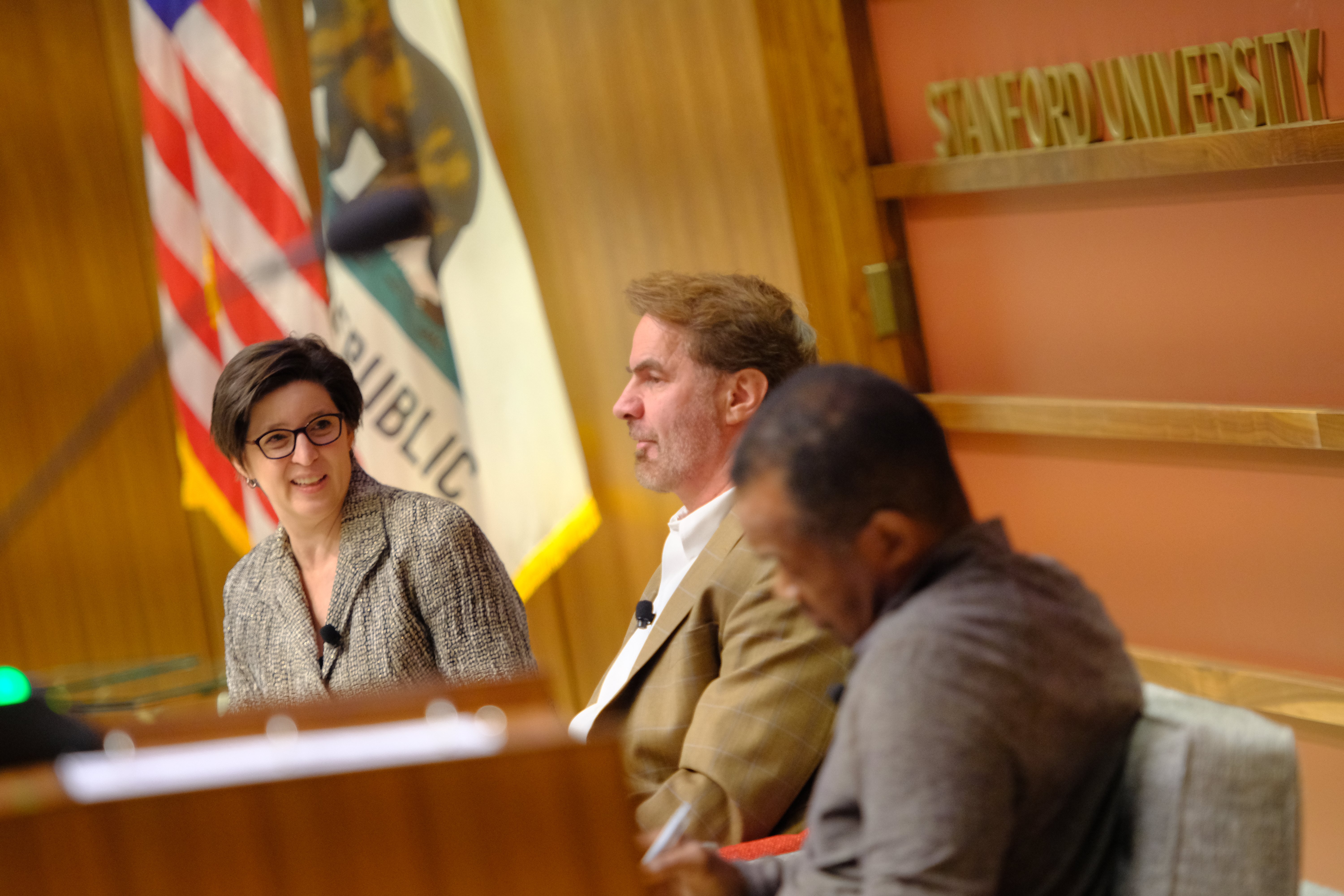[ubergrid id=1159436]
Stanford Graduate School of Business professor Susan Athey Ph.D. ’95 and MIT Sloan professor Erik Brynjolfsson spoke about the effect of artificial intelligence on the economy.
Brynjolfsson remarked that “there’s no economic law that is everyone is going to benefit from all of these [technical] challenges; it’s possible for many people to have been left behind, and indeed, many have,” mentioning stagnant median income, increasing wealth inequality and the loss of jobs to computers.
“There’s a tidal wave coming that has barely hit yet … $713 billion of economic activity” projected to be lost to the tasks most suitable to machine learning, he said.
A common theme of the talk was the application of AI in making humans’ lives easier by increasing the efficiency of the economy. For instance, for many Americans, “reducing commute is equivalent to a pay raise,” Athey said, claiming that many would even prefer a shorter commute over a raise.
Athey added that “transportation and housing are two sides of the same coin,” as more streamlined transportation will lead to greater mobility and greater access to housing. Thus, AI’s advances in autonomous vehicles and better, cheaper and more efficient public transportation has far-reaching consequences for the rest of the economy.
In addressing other industries that stand to be transformed, Athey argued that tech can make education, healthcare and food distribution more efficient. Athey suggested that AI might reduce inequality by giving patients affordable access to medical care and education.
Both panelists agreed on the need to pass on the economic benefits of AI to consumers. The “disaster we want to avoid,” Athey said, “is too much market power in any part of the supply chain, whether it’s the robotics or the platforms” leading to “low wages or less employment but higher prices.”
The panel’s moderator, venture capitalist Ken Denman, said that investors are “pouring money into” AI, with hopes of high returns. He argued that involvement from academia and diverse perspectives in AI is crucial for this.
Brynjolfsson replied that aside from financial rewards, there are a whole host of other motivators, “and we can’t assume [AI development] is going to happen automatically … we also have to think harder about what our values are.”
Contact Won Gi Jung at jwongi ‘at’ stanford.edu, Max Hampel at mhampel ‘at’ stanford.edu, Marianne Lu at mlu23 ‘at’ stanford.edu, Daniel Yang at danieljhyang ‘at’ stanford.edu and Trishiet Ray at trishiet ‘at’ stanford.edu.
The photo credit has been updated to reflect that the photographer was Ryan Zhang, not Midori Yoshimura. The Daily regrets this error.
